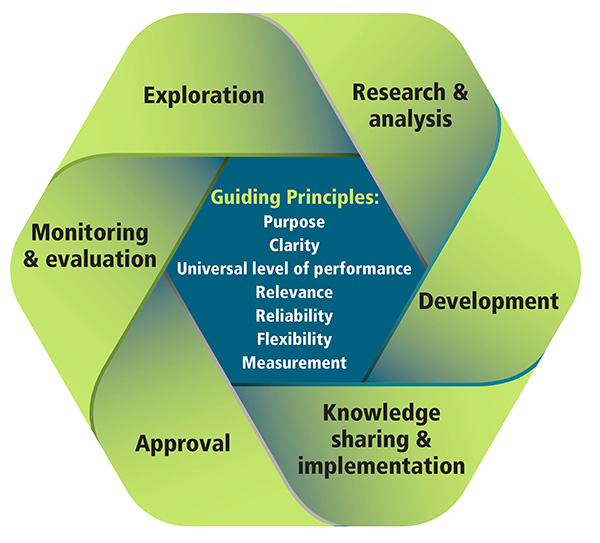To protect the public interest, one of the College’s key functions is to develop, establish and maintain standards of practice.
A number of factors influence their development. These are:
- nursing practice
- laws and government policy
- societal and health care context
- public confidence
- College Council and committees
- College members and stakeholders
A number of principles guide the development process. The standard must:
- have an explicit purpose that aligns with the College’s public interest mandate
- be clear and easily understood
- be relevant to nursing practice and reflect the generally accepted practice of a competent nurse
- be reliable and produce the intended purpose of public protection
- be flexible and apply to nurses working in different settings and roles
- provide a benchmark for the level of performance of a competent nurse
- be able to assess and measure performance
Development process
Developing standards is not a linear process. Different activities can occur in a number of phases at once. It is also common to move back and forth among phases.
Phases of development

Exploration
Conduct ongoing environmental scanning to identify actual or potential risks of nursing practice to the public interest.
Research & analysis
Investigate risks and how they can be lessened by collecting comprehensive information including:
- environmental scanning
- College data
- professional networking
- literature, documents and jurisprudence reviews
- consultation with nurses, members of the public and stakeholders
Development
Develop standards based on the best available evidence, with input from members of the public and extensive consultation with nurses, stakeholders and experts.
Approval
Council must approve nursing standards.
Knowledge sharing & implementation
Publish standards and communicate information to nurses and other stakeholders.
Monitoring & evaluation
Use different sources of information to ensure the standards achieve their intended purpose and stay relevant to public protection over time.